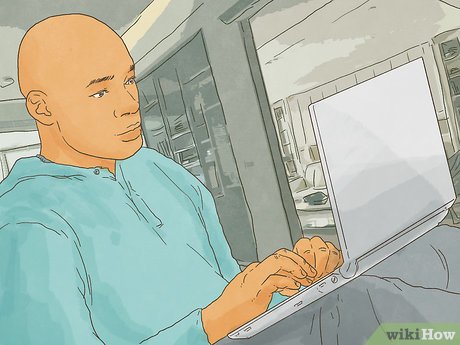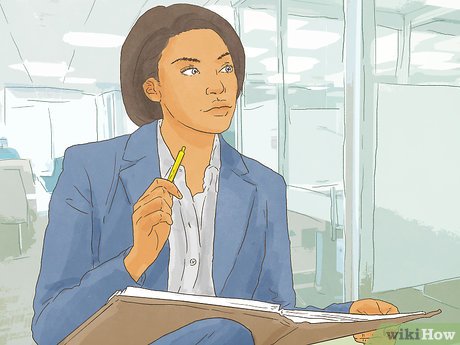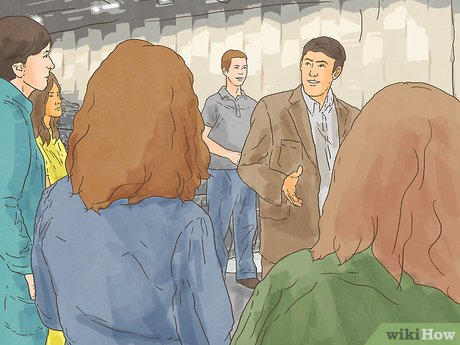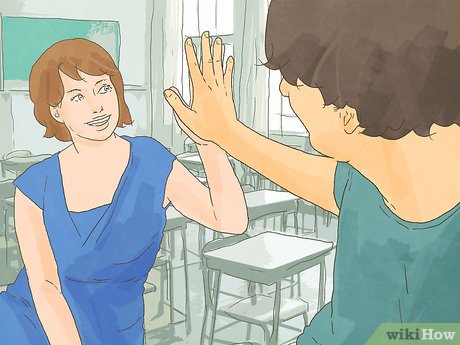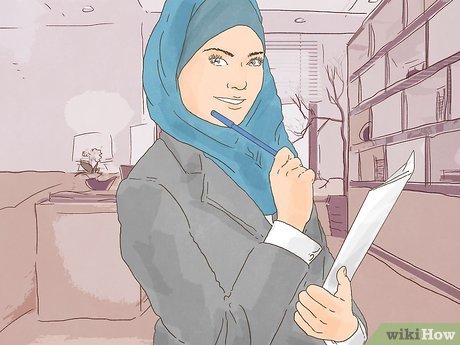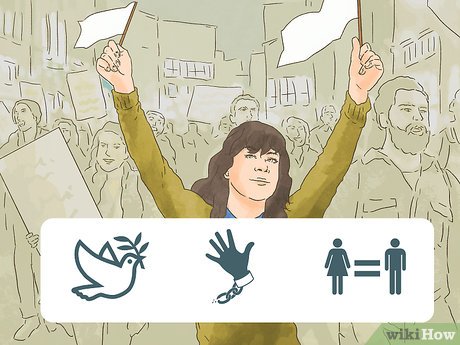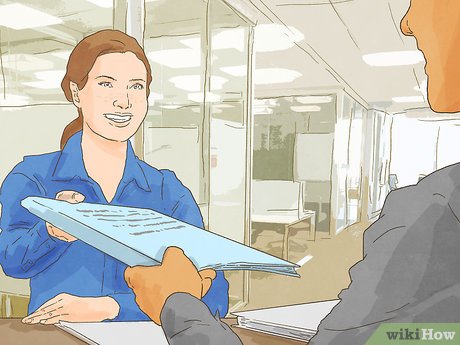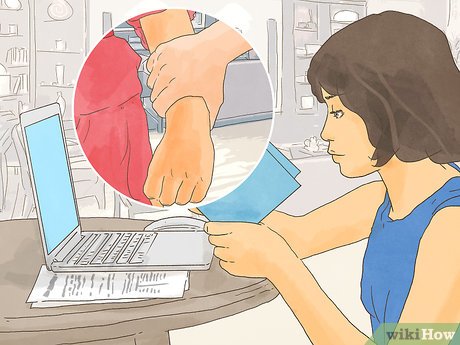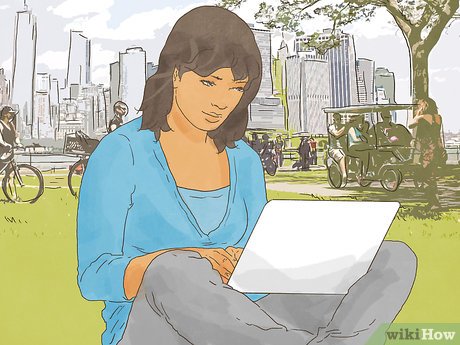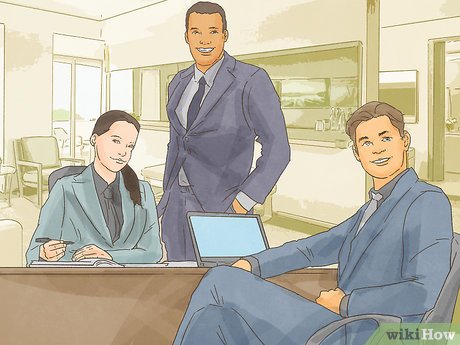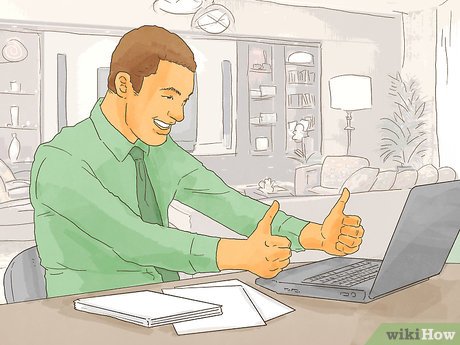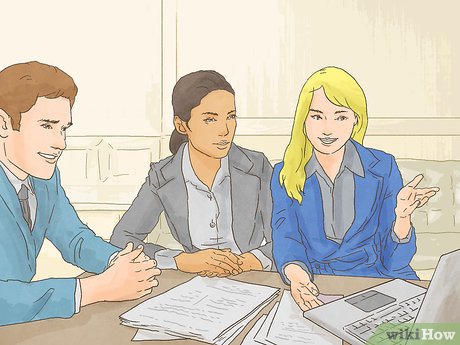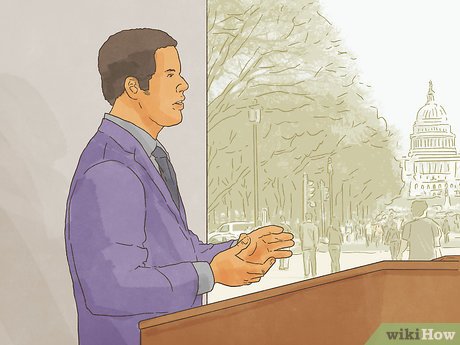How to Take Steps to Protect Human Rights
Part 1 of 3:
Identifying Human Rights
-
 Recognize civil rights. In 1948, the United Nations General Assembly set forth the Universal Declaration of Human Rights (UDHR), which is a list of human rights inherent to all people. Members of the UN pledged to protect and promote these rights.[1] The largest concentration of rights in the UDHR can be categorized as 'civil rights,' which are rights related to one's physical integrity and protection under the law. The first 18 tenets of the UDHR set forth individual's civil rights, which include:[2]
Recognize civil rights. In 1948, the United Nations General Assembly set forth the Universal Declaration of Human Rights (UDHR), which is a list of human rights inherent to all people. Members of the UN pledged to protect and promote these rights.[1] The largest concentration of rights in the UDHR can be categorized as 'civil rights,' which are rights related to one's physical integrity and protection under the law. The first 18 tenets of the UDHR set forth individual's civil rights, which include:[2]- The right to equality and the right to life, liberty, and personal security.
- Freedom from discrimination, slavery, and from torture and degrading treatment.
- The right to recognition as a person before the law and equality under the law.
- The right to a remedy from a competent tribunal and to a fair public hearing.
- Freedom from arbitrary arrest and exile and from interference with privacy, family, home and correspondence.
- The right to be considered innocent until proven guilty.
- The right to free movement in and out of one's own country and the right to asylum from persecution in other countries.
- The right to a nationality and the freedom to change it.
- The right to marriage and family, and to own property.
- Freedom of belief and religion.[3]
-
 Identify political rights. Human rights that are political in nature include those rights related to a person's participation in government and the freedom from governmental intrusion. These rights are set forth in Articles 19 to 21 of the UDHR and include:[4]
Identify political rights. Human rights that are political in nature include those rights related to a person's participation in government and the freedom from governmental intrusion. These rights are set forth in Articles 19 to 21 of the UDHR and include:[4]- Freedom of opinion and expression and the right to information.
- Freedom of peaceful assembly and association.
- The right to participate in government, equal access to public service in his or her country, and the right to vote in free elections.[5]
-
 Recognize economic and social rights. These rights establish the conditions that are necessary for individuals to prosper and to have an adequate standard of living. Articles 22 to 26 of the UDHR set forth economic and social rights, which include:[6]
Recognize economic and social rights. These rights establish the conditions that are necessary for individuals to prosper and to have an adequate standard of living. Articles 22 to 26 of the UDHR set forth economic and social rights, which include:[6]- The right to social security.
- The right to participate in desirable work and to join trade unions.
- The right to rest and leisure and an adequate living standard for one's health and well-being.
- The right to education, which is free during elementary and fundamental stages of development.[7]
-
 Be aware of cultural rights. Article 27 of the UDHR sets forth a person's cultural rights. These rights include the right to participate in the cultural life of the community and the protection of the moral and material interest in a person's own scientific, literary or artistic production.[8]
Be aware of cultural rights. Article 27 of the UDHR sets forth a person's cultural rights. These rights include the right to participate in the cultural life of the community and the protection of the moral and material interest in a person's own scientific, literary or artistic production.[8]
Part 2 of 3:
Protecting and Promoting Human Rights in your Personal Life
-
 Embrace the duty to protect and promote human rights. The protection and promotion of human rights is not limited to the United Nations or governments. Every person has an affirmative duty to help create an environment in which human rights are promoted and respected.[9]
Embrace the duty to protect and promote human rights. The protection and promotion of human rights is not limited to the United Nations or governments. Every person has an affirmative duty to help create an environment in which human rights are promoted and respected.[9] -
 Learn about human rights. There are a number or ways that you can become educated about human rights, human rights abuses, and activism against human rights.
Learn about human rights. There are a number or ways that you can become educated about human rights, human rights abuses, and activism against human rights.- Take a course at a local college on human rights. Depending on the course you choose, you may get an introduction to human rights and the law, the way that rights are monitored and protected and the steps that are taken to respond to human rights violations.[10]
- There are a number of free online courses on human rights that you can take. You can find some of these courses at: https://www.humanrightscareers.com/courses/.
-
 Participate in local human rights activism. Not all people are able to advocate for human rights on an international or national scale. Yet there is plenty of work that individuals can do locally to promote and support human rights.
Participate in local human rights activism. Not all people are able to advocate for human rights on an international or national scale. Yet there is plenty of work that individuals can do locally to promote and support human rights.- Attend a local event sponsored by human rights organizations such as Amnesty International. By participating in a local event against a human rights violation, such as protesting the death penalty, your actions are part of a larger collective action against injustice. You can find local events on Amnesty International's website: http://www.amnestyusa.org/get-involved.[11]
- Sign or create a petition related to human rights issues. You may feel passionate about adequate housing for all or food for children living in poverty and there are likely other people who share your passion. By creating a petition to support local, state or national legislation, you are actively promoting and protecting human rights. Amnesty International has a number of human rights related petitions at http://www.amnestyusa.org/get-involved/take-action-now.
- Support politicians with a demonstrated commitment to human rights issues.[12]
-
 Document human rights violations. If you witness a violation of any of the human rights set forth in the UDHR (discussed above), you can report these violations to organizations dedicated to protecting and preserving human rights for all. In order to submit a complaint about human rights abuses, you must be able to document and provide the following information:
Document human rights violations. If you witness a violation of any of the human rights set forth in the UDHR (discussed above), you can report these violations to organizations dedicated to protecting and preserving human rights for all. In order to submit a complaint about human rights abuses, you must be able to document and provide the following information:- Identify the specific article of the UDHR that was violated.
- Set forth all of the facts related to the human rights abuse in a detailed manner, and if possible, in chronologically order.
- Provide the date, time and place of the incident(s); name and position of the perpetrator(s); place of detention if applicable; names and addresses of any witnesses and any other important details.[13]
-
 Report local human rights violations to a trusted organization. After documenting local human rights abuses, you should report these abuses to a trusted organization dedicated to protecting and preserving human rights. Even if the perpetrators are not criminally prosecuted, by reporting violations you enable these organizations to shed light on the abuses and hopefully pressure the perpetrators into changing their behavior. You can report human rights abuses to:
Report local human rights violations to a trusted organization. After documenting local human rights abuses, you should report these abuses to a trusted organization dedicated to protecting and preserving human rights. Even if the perpetrators are not criminally prosecuted, by reporting violations you enable these organizations to shed light on the abuses and hopefully pressure the perpetrators into changing their behavior. You can report human rights abuses to:- Amnesty International at: https://www.amnesty.org/en/about-us/contact/.
- Human Rights Action Center at: http://www.humanrightsactioncenter.org/about/.
- Human Rights Watch at: https://www.hrw.org/contact.
- Children's Defense Fund at: http://www.childrensdefense.org/contact/.
- You can find links to additional organizations at: http://www.humanrights.com/voices-for-human-rights/human-rights-organizations/non-governmental.html.[14]
-
 Report serious human rights violations to the United Nations. If you are witness to serious violations of human rights, particularly atrocities committed by your government and you are not sure where you can turn, you can report these violations directly to the United Nation's Sub-Commission on Human Rights. You must draft a written complaint, which includes:
Report serious human rights violations to the United Nations. If you are witness to serious violations of human rights, particularly atrocities committed by your government and you are not sure where you can turn, you can report these violations directly to the United Nation's Sub-Commission on Human Rights. You must draft a written complaint, which includes:- Your name or the name of the organization making the complaint and a clear statement as to whether you want to remain anonymous.
- The complaint must clearly state and uncover a consistent pattern of significant and documented human rights violations.
- You must identify the victims of the human rights violations as well as the perpetrators and provide a detailed description of the violations.
- Include evidence such as a statement by the victim, medical reports or any other information that can support your complaint.
- Clearly state which rights, as set forth in the Universal Declaration of Human Rights, were violated.
- Give the reason you are seeking UN intervention.
- Show that you have exhausted any other remedies.
- Your complaint can be sent to: Commission/Sub-Commission Team (1503 Procedure), Support Services Branch, Office of the High Commissioner for Human Rights, United Nations Office at Geneva, 1211 Geneva 10, Switzerland.
- The complaint can also be faxed to + 41 22 9179011 or emailed to: CP(at)ohchr.org.[15]
Part 3 of 3:
Protecting Human Rights in your Professional Life
-
 Pursue a career as a human rights lawyer. National and international law are the primary way that human rights are guaranteed and protected. Therefore, pursing a career as a human rights attorney is a very direct way that you can professionally protect human rights around the world or in your own country. Human rights attorneys bring cases on behalf of victims of human rights violations and against state actors or governments that are violating national and international law.[16]
Pursue a career as a human rights lawyer. National and international law are the primary way that human rights are guaranteed and protected. Therefore, pursing a career as a human rights attorney is a very direct way that you can professionally protect human rights around the world or in your own country. Human rights attorneys bring cases on behalf of victims of human rights violations and against state actors or governments that are violating national and international law.[16] -
 Participate in a human rights fellowship. If you are unsure of how best to put your skills to work in supporting human rights, you can consider participating in the United Nation's human rights fellowship program. These programs are run throughout the world and provide those selected an intensive introduction and understanding of human rights mechanisms and international institutions. The Office of the United Nations High Commissioner for Human Rights (OHCHR) offers four fellowship programs:
Participate in a human rights fellowship. If you are unsure of how best to put your skills to work in supporting human rights, you can consider participating in the United Nation's human rights fellowship program. These programs are run throughout the world and provide those selected an intensive introduction and understanding of human rights mechanisms and international institutions. The Office of the United Nations High Commissioner for Human Rights (OHCHR) offers four fellowship programs:- The Indigenous Fellowship Program, which is for members of indigenous groups who seek human rights training.
- The Minorities Fellowship Program is for persons belonging to national, ethnic, religious or linguistic minorities who with to receive human rights training.
- The Human Rights LDC Fellowship Program is a program for graduate students from the least developed countries who want to participate in training on the United Nations and human rights.
- The Fellowship for National Human Rights Institutions (NHRIs) Staff provides staff members from NHRIs training on international human rights and the work of OHCHR with NHRIs.[17]
- You can find application information and instructions at: http://www.ohchr.org/EN/AboutUs/CivilSociety/Documents/Handbook_en.pdf
-
 Work for a human rights organization. There are numerous organizations dedicated to promoting and protecting human rights. These organizations hire a variety of staff including activists, administrative assistants, and people who work on campaigns, policy positions, and lobbying. If you are interested in pursuing a career in human rights, consider:
Work for a human rights organization. There are numerous organizations dedicated to promoting and protecting human rights. These organizations hire a variety of staff including activists, administrative assistants, and people who work on campaigns, policy positions, and lobbying. If you are interested in pursuing a career in human rights, consider:- Trying to get internships and volunteering as much as possible as a way to get a better sense of the work that these organizations do and whether you are really interested in it.
- Reading about human rights and thinking about how you can contribute to the movement.
- Studying or interning abroad while you are in college and learning another language.
- Learning how to write grants, fundraise, research and write, which are all essential skills for working at a non-governmental organization (NGO).
- You can review a list of human rights organizations, with contact information, at: http://www.humanrights.com/voices-for-human-rights/human-rights-organizations/non-governmental.html.
-
 Become a political leader dedicated to human rights. Governments have primary responsibility for protecting and promoting human rights. They must pass laws that establish and protect the human rights of all citizens and they must actively refrain from impinging on those rights. If you are interested in politics, you should consider a career as a legislator. In this role, you will have the ability to introduce human rights legislation, advocate your position, and ultimately support laws that protect human rights.[18]
Become a political leader dedicated to human rights. Governments have primary responsibility for protecting and promoting human rights. They must pass laws that establish and protect the human rights of all citizens and they must actively refrain from impinging on those rights. If you are interested in politics, you should consider a career as a legislator. In this role, you will have the ability to introduce human rights legislation, advocate your position, and ultimately support laws that protect human rights.[18]
Share by
David Pac
Update 24 March 2020
